About Prestera Center at Pinecrest
If you’re looking for a drug and alcohol rehab for adults in Huntington, West Virginia, you can go to Prestera Center at Pinecrest. You can join their short-term live-in program which takes 28 days to complete. If you need more time to heal and develop new habits, they have a long-term live-in option, or outpatient sessions for those who can’t be away from home.
You’ll have access to addiction medication to help your body adjust to being without the chemicals. These medications remove withdrawal symptoms and cravings. They’re offered as an alternative to abstinence based recovery.
What I like about their setup is they use medical assistants in their part time program. When you arrive for your appointment, they’ll do your assessments, update your profile and help with other tasks. By taking on this role, they free the providers to focus on your well-being and progress.
Another unusual offering at this location is its wellness program. You’ll have access to nutritional guidance and exercise programs. Looking after your physical health is a vital part of recovering from addiction. Substance usage often leaves your body depleted of the nutrients it needs to function properly. This leaves you vulnerable to sickness or disease. As you begin to feel better, it becomes easier to make healthy choices. They also offer a smoking cessation program.
If you’re looking for fun sober activities close to the center, why not try Frisbee Golf? Available in two different parks within Huntington, you’ll have fun in the sun, exercise and the opportunity to bond with sober friends.
Addiction Treatment Programs
Alcohol Rehab
The goal of an alcohol rehab in West Virginia is to give you the tools and skills you need to achieve long-term recovery. Common services include counseling and classes on coping skills, emotional management, communication, and other key life skills. Alcohol rehab programs can provide inpatient or outpatient treatment.
Dual Diagnosis
Mental health concerns and substance use are often linked, which is known as a dual diagnosis. The right rehab in West Virginia can help you break free. Dual diagnosis programs may offer detox, inpatient treatment, and/or outpatient care. The key is that they provide integrated treatment for both mental health symptoms and substance use.
Opioid Addiction
In West Virginia, rehab provides a combination of therapy and education to help clients overcome opioid addiction. Drug rehab may include detox, inpatient treatment, and/or outpatient care. You’ll learn the roots of addiction and learn how to build a substance-free life.
Adult Program
An adult program in West Virginia addresses the recovery needs of clients in this life stage and gives them the tools they need to succeed. Some of the common services will include counseling and classes on coping skills, emotional management, communication, and other key life skills. Adult programs can provide inpatient or outpatient treatment.
Men's Rehab
Men’s rehab programs in West Virginia address the unique needs of men in a safe, gender-specific environment. Some of the common services they include are counseling and classes on coping skills, emotional management, communication, and other key life skills. Men’s programs can provide inpatient or outpatient treatment.
Young Adult Rehab
Young people need unique support, and a young adult rehab in West Virginia can help them learn new life skills while overcoming addiction. Some of the common services will include counseling and classes on coping skills, emotional management, communication, and other key life skills. Young adult programs can provide inpatient or outpatient treatment.
Insurance Coverage
Medicaid
If you qualify for Medicaid in West Virginia, you can use your coverage to help pay for rehab treatment. This can be helpful for those struggling to pay for treatment. Look for centers that accept Medicaid and offer the levels of care you need, such as detox, inpatient, and outpatient treatment.
Private insurance
private insurance is a good way to pay for substance use treatment in West Virginia. Be sure to contact the insurance company to find out what centers are in-network with your plan and to learn other coverage details.
Self-pay options
People in West Virginia looking for rehab have many payment options, one of which is self-pay. This method allows you to write a check, electronically transfer money, or use a medical loan to pay for treatment. Check on the fee structure, which may vary depending on the type of care.
Financial aid
There are many ways to pay for rehab in West Virginia, including using financial aid programs if you qualify. You can pay for detox, inpatient treatment, or outpatient care using scholarships or grants from the treatment center or from local organizations.
Medicare
For those with Medicare, using your coverage to pay for treatment in West Virginia can make rehab more accessible. Keep in mind that you’ll need to choose a center that accepts your plan, and you might have out-of-pocket costs such as a deductible or copayment. Look into your plan documents for full details.
Military insurance
There are many ways to pay for rehab in West Virginia, including using military insurance if you’re a service member or veteran. You may have out-of-pocket costs such as a deductible or copay, and you’ll want to look for treatment center in-network with your insurance coverage.
Levels of Care
- 1
Detox Treatment
Don’t be afraid of detox in West Virginia. It’s the first step toward building a new life you love. During detox, you won’t just sit around. Instead, detox can include counseling, group activities, healthy meals, and more to help you move through withdrawal safely and prepare for rehab.
- 2
Inpatient Rehab
Inpatient treatment in West Virginia allows clients to live full-time in the facility while getting the care they need. Inpatient treatment includes multiple approaches, including cognitive behavioral therapy (CBT), motivational interviewing (MI), and holistic therapy options.
- 3
Outpatient Rehab
If you want to attend school or work during rehab, consider outpatient treatment in West Virginia. You’ll live independently except when you’re attending rehab. Outpatient treatment is commonly a follow-up to residential treatment and may be used to help with skill-building, education, and to practice your new habits in daily life.
- 4
Sober Living Homes
During sober living in West Virginia, clients will receive ongoing support that makes it easier to practice their new habits and maintain recovery. Some sober living programs are simply houses to live in and build your own life, while others include employment training, job assistance, life-skills classes, and more.
Therapies
Family Therapy
Overcoming substance use is easier if you have support from your loved ones. During family therapy in West Virginia, you can address challenging relationships and family conflicts to restore peace and make recovery easier. Family therapy sessions generally last 60 to 90 minutes and may include discussing marital issues, codependency, grief, domestic violence, trauma, and other topics that impact families. The goal is to create healthier relationships that can support recovery.
Group Therapy
Overcoming substance use is easier if you’re not alone. During group therapy in West Virginia, you’ll hear others’ perspectives and get the support you need. Group therapy is a common part of both inpatient and outpatient substance use treatment, and may be used to help with skill-building, processing, and to present educational information.
Individual Therapy
Individual therapy in West Virginia helps clients overcome substance use by providing individualized, confidential support. Individual focuses on improving both behavioral and emotional health. You may explore thought processes, develop motivation to change, and/or explore past events that may have played a part in your substance use.
Trauma Therapy
Many people with addiction issues in West Virginia use substances to decrease difficult feelings such as guilt, shame, fear, and more. Trauma-informed therapy can help you understand where these feelings come from and how to deal with them in a better way. When you receive trauma-informed therapy, it may include peer support, grief counseling, medications to support mental health, and developing healthier responses to emotional triggers.
Accreditations
Location
Contact Prestera Center at Pinecrest
Top Drug Rehab Centers in West Virginia
-
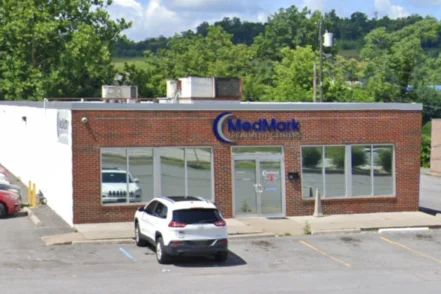 West Virginia
West VirginiaMedMark Treatment Centers Morgantown
Don Knotts Boulevard 53 Morgantown, West Virginia 26508
-
 West Virginia
West VirginiaBeckley Comprehensive Treatment Center
175 Philpott Lane Beaver, West Virginia 25813
-
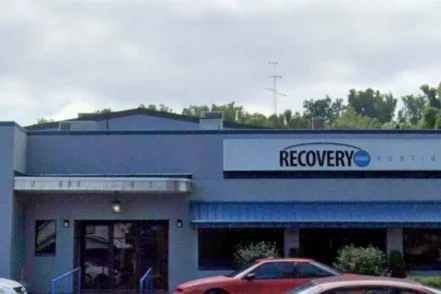 West Virginia
West VirginiaRecovery Point Huntington
2425 9Th Avenue Huntington, West Virginia 25705
-
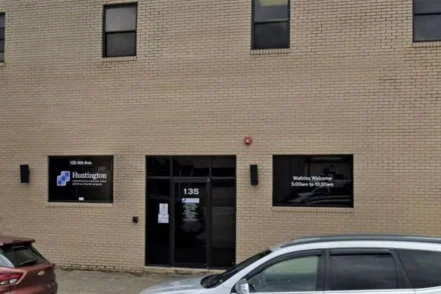 West Virginia
West VirginiaHuntington Comprehensive Treatment Center
135 Fourth Avenue Huntington, West Virginia 25701
-
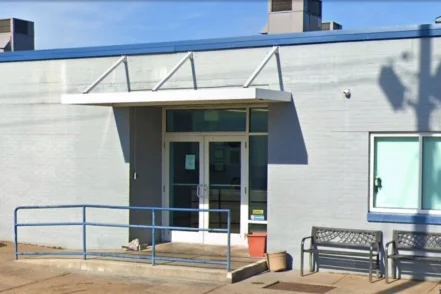 West Virginia
West VirginiaRecovery Point Charleston
501 Stockton Street Charleston, West Virginia 25312
-
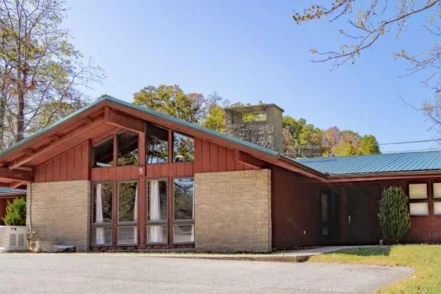 West Virginia
West VirginiaHarmony Ridge Recovery Center
47 Chambers Circle Road Walker, West Virginia 26180
-
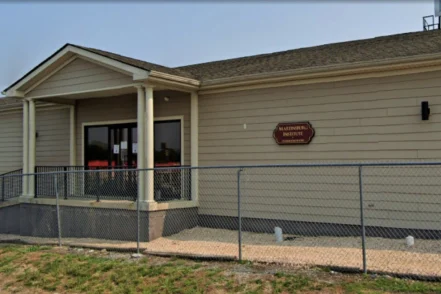 West Virginia
West VirginiaMartinsburg Institute
223 Eagle School Road Martinsburg, West Virginia 25404
-
 West Virginia
West VirginiaWilliamson Comprehensive Treatment Center
1609 West Third Avenue Williamson, West Virginia 25661
-
 West Virginia
West VirginiaCharleston Comprehensive Treatment Center
2157 Greenbrier Street Charleston, West Virginia 25311
-
 West Virginia
West VirginiaAdult and Teen Challenge Appalachian Region
1651 Unity Road Princeton, West Virginia 24739

